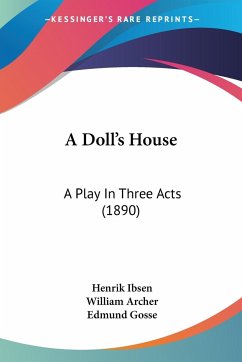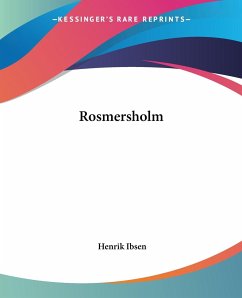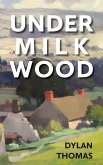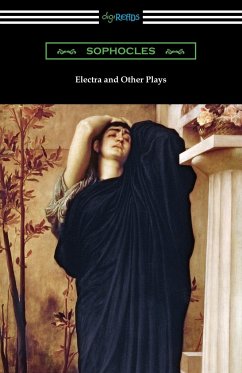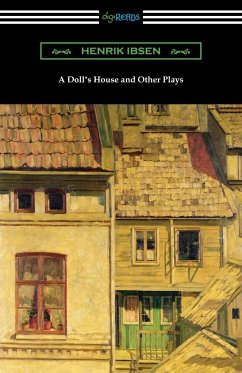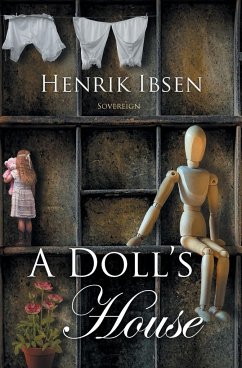A revised Methuen Student Edition of the classic set text A Doll's House (1879), this is a masterpiece of theatrical craft that for the first time portrayed the tragic hypocrisy of Victorian middle-class marriage on stage. The play ushered in a new social era and "exploded like a bomb into contemporary life."
A Doll's House is a play written by Henrik Ibsen in 1890 that tells the story of Nora Helmer, a seemingly happy housewife who struggles with the restrictions placed upon her by society and her husband, Torvald. The play is set in Norway during the late 19th century and explores themes of gender roles, the nature of marriage, and the search for personal identity.The play begins with Nora returning home from a shopping trip, excited to show her husband the gifts she has bought for their children. However, her happiness is short-lived as Torvald scolds her for spending too much money and reminds her of her duty as a wife and mother. This interaction sets the stage for the rest of the play, as Nora begins to question the role she has been assigned and the sacrifices she has made for her family.As the play progresses, Nora's secrets are revealed, including the fact that she borrowed money to save her husband's life and has been paying back the loan in secret. When Torvald discovers the truth, he reacts with anger and disgust, causing Nora to realize that her husband does not truly love or respect her.In the final act of the play, Nora makes the decision to leave her husband and children, stating that she must find herself and live her own life. The play ends with Nora slamming the door behind her, symbolizing her rejection of the societal norms that have held her back.A Doll's House is considered a groundbreaking work of feminist literature, as it challenges traditional gender roles and highlights the importance of personal freedom and individuality. It remains a popular and influential play to this day, and has been adapted into numerous films and stage productions.This scarce antiquarian book is a facsimile reprint of the old original and may contain some imperfections such as library marks and notations. Because we believe this work is culturally important, we have made it available as part of our commitment for protecting, preserving, and promoting the world's literature in affordable, high quality, modern editions, that are true to their original work.
Hinweis: Dieser Artikel kann nur an eine deutsche Lieferadresse ausgeliefert werden.
A Doll's House is a play written by Henrik Ibsen in 1890 that tells the story of Nora Helmer, a seemingly happy housewife who struggles with the restrictions placed upon her by society and her husband, Torvald. The play is set in Norway during the late 19th century and explores themes of gender roles, the nature of marriage, and the search for personal identity.The play begins with Nora returning home from a shopping trip, excited to show her husband the gifts she has bought for their children. However, her happiness is short-lived as Torvald scolds her for spending too much money and reminds her of her duty as a wife and mother. This interaction sets the stage for the rest of the play, as Nora begins to question the role she has been assigned and the sacrifices she has made for her family.As the play progresses, Nora's secrets are revealed, including the fact that she borrowed money to save her husband's life and has been paying back the loan in secret. When Torvald discovers the truth, he reacts with anger and disgust, causing Nora to realize that her husband does not truly love or respect her.In the final act of the play, Nora makes the decision to leave her husband and children, stating that she must find herself and live her own life. The play ends with Nora slamming the door behind her, symbolizing her rejection of the societal norms that have held her back.A Doll's House is considered a groundbreaking work of feminist literature, as it challenges traditional gender roles and highlights the importance of personal freedom and individuality. It remains a popular and influential play to this day, and has been adapted into numerous films and stage productions.This scarce antiquarian book is a facsimile reprint of the old original and may contain some imperfections such as library marks and notations. Because we believe this work is culturally important, we have made it available as part of our commitment for protecting, preserving, and promoting the world's literature in affordable, high quality, modern editions, that are true to their original work.
Hinweis: Dieser Artikel kann nur an eine deutsche Lieferadresse ausgeliefert werden.

